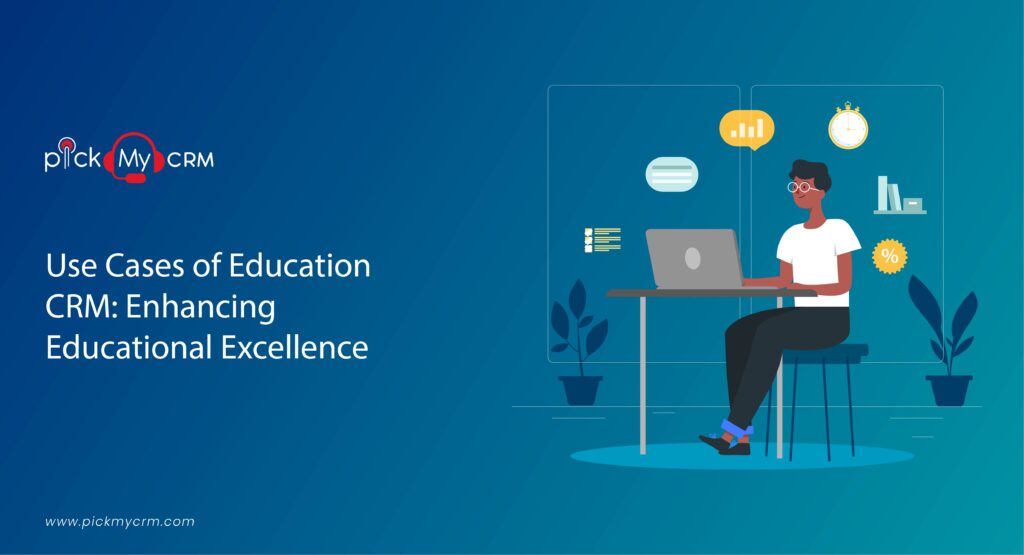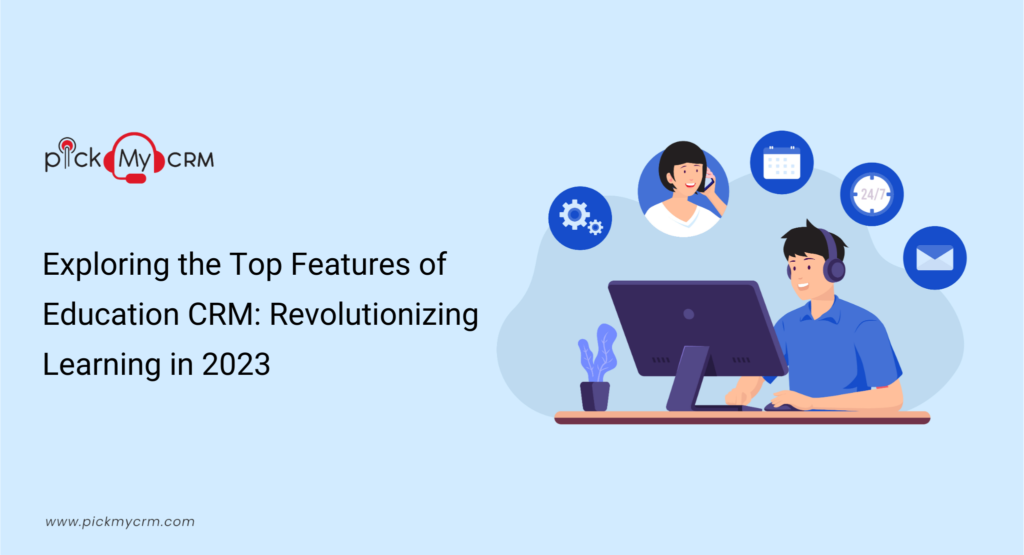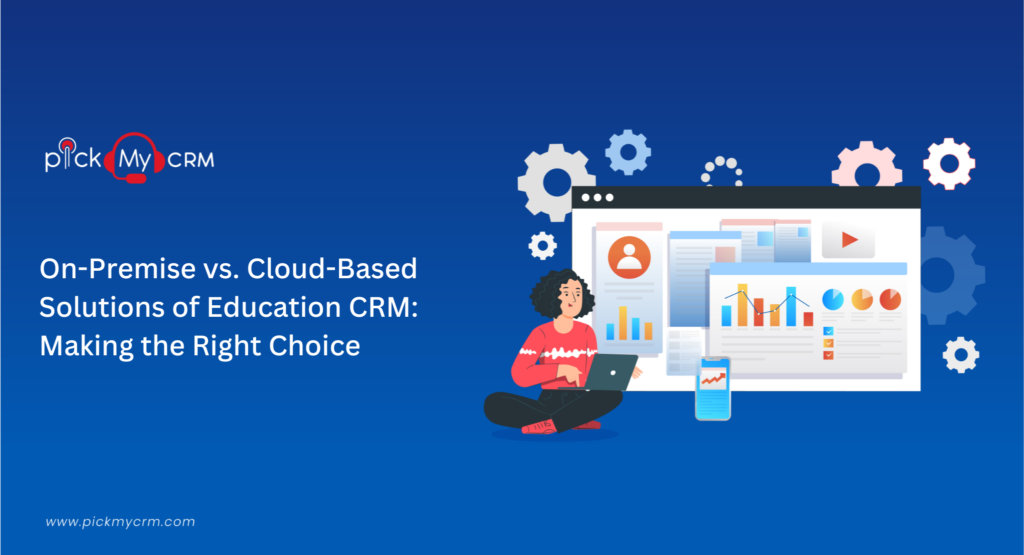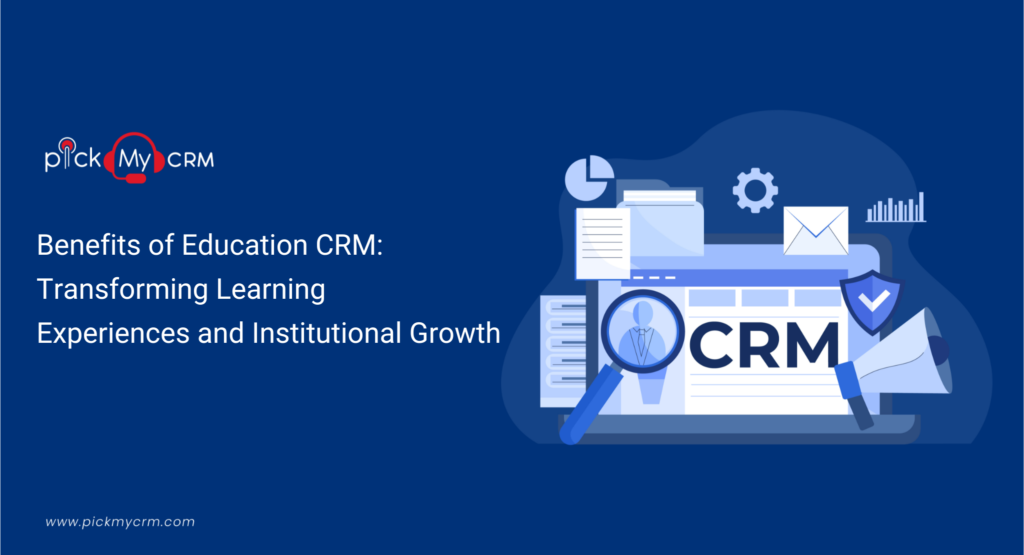Use Cases of Education CRM: Enhancing Educational Excellence
Why Implement Use Cases of Education CRM?
Implementing Use Cases of Education CRM enhances operational efficiency, improves student engagement, and empowers data-informed decision-making, ultimately contributing to long-term institutional success. It streamlines administrative tasks, personalizes communication, and fosters adaptability in an ever-evolving educational landscape.Student Enrollment and Admission Management
One of the primary functions of an Education CRM is to streamline the enrollment and admission process. These systems help institutions collect and manage prospective student data, track application progress, and communicate effectively with applicants. Automated workflows guarantee the timely meeting of Deadlines, efficient processing of documents, and sustained student engagement throughout the admissions process.Improved Communication and Engagement
Effective communication stands as the cornerstone of success for any educational institution. Education CRMs provide tools for personalized and automated communication with students, parents, and Alumni. It includes sending reminders, event notifications, newsletters, and other updates. Enhanced engagement contributes to better student satisfaction and retention rates.Academic Advising and Student Support
Education CRMs enable academic advisors to access comprehensive student profiles, including academic records and communication history. It equips advisors with the tools to provide customized guidance and support to students, ensuring they make informed choices regarding their Academic paths. Furthermore, the Activation of early intervention mechanisms can identify and assist students in confronting potential challenges.Curriculum Planning and Course Scheduling
Course schedule management and curriculum planning often pose significant challenges for educational institutions. With Education CRM systems, administrators can optimize course offerings, allocate resources efficiently, and track enrollment trends. This data-driven approach ensures that institutions can meet the demands of their students effectively.Alumni Relations and Fundraising
Maintaining relationships with Alumni is essential for long-term institutional success. Education CRMs can help institutions keep track of Alumni data, engage them in various activities, and facilitate fundraising efforts. It fosters a sense of community and can Lead to Increased financial support for the institution.Data Analytics and Reporting
Education CRMs provide powerful analytics tools that allow institutions to make data-driven decisions. Administrators can access real-time data on student performance, enrollment trends, and financial metrics. This information helps in strategic planning, resource allocation, and continuous improvement efforts.Staff and Faculty Management
Education CRM systems serve a dual purpose, as they can effectively manage student and staff or faculty data. It includes tracking qualifications, performance evaluations, and professional development opportunities. Such systems simplify HR processes, making it easier to manage personnel effectively.Parent and Guardian Portals
Many Education CRMs offer portals for parents and guardians to access important information about their child's education. It fosters transparency and collaboration between parents and educational institutions, helping parents stay informed about their child's progress and involvement.When to Implement Use Cases of Education CRM?
Implementing use cases of Education CRM can be strategically timed to address various educational needs. It can commence during the enrollment and admissions phase, student support services, Alumni engagement efforts, or at any stage where effective data management and communication play a crucial role.Where Can Use Cases of Education CRM Be Applied?
Education CRM is adaptable and finds application in a wide range of educational settings,- K-12 Schools: Education CRMs help K-12 institutions manage student data, enhance parent-teacher communication, and streamline administrative tasks.
- Higher Education: Colleges and universities can leverage CRM systems to optimize admissions, support academic advising, and maintain relationships with Alumni.
- Online Learning Platforms: Online education providers can use CRM to enhance student engagement, track student progress, and provide personalized support in a virtual learning environment.
How Does Use Cases of Education CRM Work?
Use cases of Education CRM systems work by centralizing data, automating processes, and providing analytical tools. These systems facilitate personalized communication, streamline enrollment procedures, support academic advising, and integrate with other educational software to create a unified, efficient platform.Examples of Successful Use Cases of Education CRM Implementations
Several educational institutions have successfully implemented Education CRM use cases.- Harvard University: Harvard improved its admissions process and student engagement through CRM implementation.
- University of Washington: This institution utilized CRM to optimize admissions and strengthen Alumni relations.




